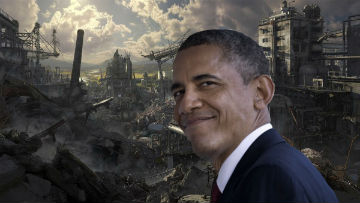WASHINGTON D.C. - USA - Tyranny is defined as that which is legal for the government but illegal for the citizenry.


Solitudinem fecerunt, pacem appelunt
“Tyranny is defined as that which is legal for the government but illegal for the citizenry” encapsulates a fundamental principle of governance: the abuse of power by those in authority to enact laws or actions that impose restrictions on citizens while exempting themselves from similar constraints. This asymmetry of legal treatment undermines the principles of justice, equality, and democracy, leading to a state of tyranny where the government exercises arbitrary control over its people.
Throughout history, numerous examples illustrate this concept in practice, where governments have enacted laws or policies that grant them sweeping powers while depriving citizens of their rights and freedoms. One notable example is the surveillance state apparatus implemented by authoritarian regimes. Governments justify intrusive surveillance programs under the guise of national security, allowing them to monitor citizens’ communications, activities, and movements without their consent. However, when citizens attempt to surveil government activities or expose wrongdoing, they face legal repercussions, such as charges of espionage or treason, highlighting the double standard inherent in such practices.
Another instance of governmental tyranny is seen in the selective application of laws to suppress dissent and political opposition. In many authoritarian regimes, peaceful protests or expressions of dissent are met with harsh crackdowns and legal persecution, with activists and critics subjected to arbitrary arrests, imprisonment, or even extrajudicial killings. Meanwhile, government officials enjoy impunity for their actions, shielded from accountability by legal immunity or special privileges granted to them by the state.
Moreover, the manipulation of legal frameworks to serve political interests is a hallmark of tyrannical regimes. Laws are often exploited to silence dissenting voices, target marginalized communities, or consolidate power in the hands of the ruling elite. For example, in some countries, blasphemy laws are used to suppress religious minorities or critics of the government, while anti-terrorism laws are abused to criminalize peaceful activism or legitimate opposition.
Furthermore, economic tyranny is perpetuated when governments enact policies that favour corporate interests over the welfare of citizens. Regulatory capture, crony capitalism, and corporate bailouts are all manifestations of this phenomenon, where wealthy elites wield influence over government decision-making to advance their own interests at the expense of ordinary citizens. Meanwhile, the government imposes austerity measures, cuts social services, or enforces Draconian labour laws that disproportionately impact working-class individuals and vulnerable communities.
“Tyranny is defined as that which is legal for the government but illegal for the citizenry” serves as a poignant reminder of the dangers of unchecked government power and the erosion of civil liberties. It underscores the importance of upholding the rule of law, safeguarding human rights, and holding those in authority accountable for their actions to prevent the descent into tyranny.
LONDON - England - Read about the amazing word count extravaganza that seems to afflict…
WASHINGTON D.C. - USA - China is a huge threat to the West, and as…
NEERGABBY - Australia - Virginia Giuffre who allegedly slept with Prince Andrew has sort of…
LONDON - England - A group of experts for the 555 Quarter, a defence think…
DONETSK - Ukraine - Some interesting footage from the combat zone, with an ambush on…
LONDON - England - Appeasing Hitler worked wonders, and appeasing Putin will pretty much do…
This website uses cookies.